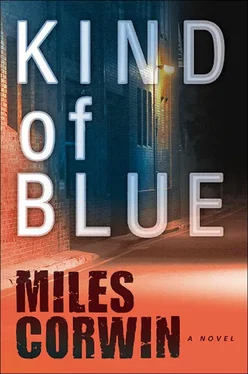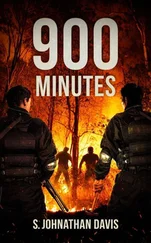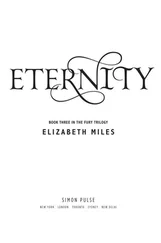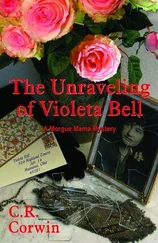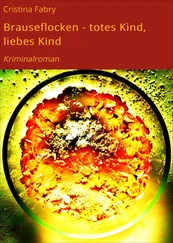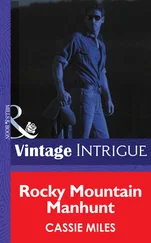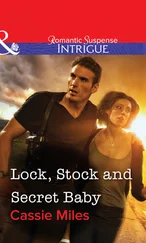Miles Corwin - Kind of blue
Здесь есть возможность читать онлайн «Miles Corwin - Kind of blue» весь текст электронной книги совершенно бесплатно (целиком полную версию без сокращений). В некоторых случаях можно слушать аудио, скачать через торрент в формате fb2 и присутствует краткое содержание. Жанр: Полицейский детектив, на английском языке. Описание произведения, (предисловие) а так же отзывы посетителей доступны на портале библиотеки ЛибКат.
- Название:Kind of blue
- Автор:
- Жанр:
- Год:неизвестен
- ISBN:нет данных
- Рейтинг книги:5 / 5. Голосов: 1
-
Избранное:Добавить в избранное
- Отзывы:
-
Ваша оценка:
- 100
- 1
- 2
- 3
- 4
- 5
Kind of blue: краткое содержание, описание и аннотация
Предлагаем к чтению аннотацию, описание, краткое содержание или предисловие (зависит от того, что написал сам автор книги «Kind of blue»). Если вы не нашли необходимую информацию о книге — напишите в комментариях, мы постараемся отыскать её.
Kind of blue — читать онлайн бесплатно полную книгу (весь текст) целиком
Ниже представлен текст книги, разбитый по страницам. Система сохранения места последней прочитанной страницы, позволяет с удобством читать онлайн бесплатно книгу «Kind of blue», без необходимости каждый раз заново искать на чём Вы остановились. Поставьте закладку, и сможете в любой момент перейти на страницу, на которой закончили чтение.
Интервал:
Закладка:
I rolled down my window and watched a few seedy hotel lobbies roll by, the faint smell of Lysol wafting out the doors. Crackheads and elderly pensioners shuffled about barefoot or in house slippers. The streetlamps cast a sickly yellow light on the sad landscape of check cashing offices, passport photo shops, and small markets that sold single cigarettes and short dogs to the rummies who jammed the corners.
Los Angeles was decades behind most major cities in attracting residents to live downtown. There had been efforts in the past, with scattered buildings that featured lofts, but they generally failed. Most people in L.A. assiduously avoided the area, which they regarded as a forbidding wasteland, a repository for the detritus of the city. During the past decade, however, numerous stately old commercial buildings had been renovated and converted into lofts, drawing renters and buyers. Still, those who chose to live downtown were viewed skeptically by many in Southern California, where a manicured front lawn and a backyard with a barbecue are considered a birthright.
Duffy screeched to a stop in front of one of the old bank buildings, an imposing Beaux Arts structure. Four massive, pale green marble columns border the filigreed brass door. The building was constructed of cream-colored stone and at the top is an ornate, swirling cornice shading a dozen stone griffins, eyes bulging, surveying the skyline.
“I like the building, but your neighborhood’s a shithole. You can’t find an LAPD cop who lives in the city, yet you move downtown,” Duffy said, snorting.
“After Robin left me, this is where I wanted to be,” I said.
“I been divorced three times,” Duffy said. “This your first, right?”
I nodded. “But the divorce hasn’t gone through yet; we’re still separated. I’m waiting for her to file the judgment forms and all the final documents with the court.”
“Is it really over?”
“Yeah. It’s really over.”
“You’ll need this,” he said, handing me the keys to an unmarked LAPD detective car. “You can pick it up tomorrow.”
I flipped the door handle, but before I could climb out, Duffy grabbed my arm.
“I’ve got something for you, Asher,” he said, opening his briefcase. In the center, gleaming from a fresh polishing, was the stainless-steel-and-copper badge that I had turned in eleven months before. “I made sure your number wasn’t reassigned.”
I took the badge from Duffy and nodded. I felt my throat catch. Getting the detective badge had been one of the greatest moments of my life. Handing it in had been one of the worst. Now, feeling the heft of it in my palm and running my fingers along the outline of City Hall, my resentment toward Duffy began to dissipate a bit.
Duffy extended his hand.
I shook it and said softly, “Thanks LT.”
At the front door, I punched my code into the keypad, slipped inside, and took the elevator to the top floor. I unlocked my door and set the badge on a small wooden table. My loft, a spare, cavernous expanse, has exposed brick walls, polished concrete floors, and two gold-trimmed skylights streaked with dust. Suspended from metal hooks near my bed are a mountain bike and a surfboard. One large window faces west, the lights atop the skyscrapers on Bunker Hill twinkling in the distance; a smaller window on the other side of the loft faces east, offering a view of the rooflines of hundred-year-old brick and stone buildings.
I grabbed a beer from the refrigerator, flipped on my CD player, and eased into my leather chair. Studying the lights of the skyscrapers, I listened to the Miles Davis cut “So What.” For the past eleven months this had been my melancholic anthem. Night after night, month after month, I sat here, unable to sleep, watching ESPN with the sound off, listening to “So What,” while I stared dully at the obscure sporting events the network showed from midnight until dawn. I was lost; I just didn’t care anymore. As we used to say in the IDF, I was zayin nishbar — my dick was broken. I winced, thinking about one tortured night, about a week after Latisha Patton was killed, when I was on suspension. I was so enraged at the asshole who had shot her, so infuriated that I had been prevented from tracking him down, so incensed at my own impotency, that I vowed I would never feel that kind of agony again. I pulled out my Beretta, slipped the barrel into my mouth and listened to the bittersweet, silky-smooth horns of Miles, Cannonball, and Coltrane, the plaintive piano of Bill Evans, thinking that if I was to pick the last thing I would ever hear on this earth, it might as well be the opening bars to “So What.” I’d first heard “So What” when I was discharged from the Israeli army and had descended into a similar funk. Disillusioned, angry, and confused, I had found that the cut was the only thing that gave me any comfort.
When I was nineteen, I decided to move to Israel and volunteer for the army. I always thought of my relatives who were murdered in the Holocaust-and even my father, who had survived a concentration camp as a boy and had a string of pale blue numbers tattooed on his forearm-as victims. I wanted a different kind of Jewish identity for myself.
For so long, the Holocaust had been the focus of my Jewish identity, the focus of my entire identity. Growing up, my house was a place populated by ghosts and demons. Ghosts-the dozens of murdered relatives. Demons-the Nazis who murdered them. Sometimes, lying in bed, right before falling asleep, when the duplex creaked in a Santa Ana, I could hear the screams and gasps of my relatives; sometimes, when the refrigerator slammed shut, I could hear the clanging door of a gas chamber. Sometimes, walking home from school, I would see a guy wearing a dark coat looking at me and I would panic, convinced he was a Nazi who was going to capture and torture me, and I would run home, out of breath, jump into bed, and cover my head with pillows.
My house was a place of long, brooding silences and sudden angry eruptions. The sadness was something so palpable that I felt that I could actually touch it, like a patch of fabric. As a child, letting myself experience any emotion, was simply too painful, so I chose not to feel anything. And I didn’t. But then, some little thing would set me off in school, and I would rage in the classroom, screaming at the teacher or pummeling a student who had irritated me, or throwing pencils against the blackboard. My mother would have to come to school and pick me up at the principal’s office. When my mother later told my father what had happened, he would snort contemptuously and say, “What have you got to be upset about? When I was your age I saw my father shot in a ditch.”
Since visions of murdered relatives had tormented my childhood, I figured that in order to purify myself as an adult, I would do some killing of my own. I flew to Tel Aviv and, naive and idealistic, enlisted in the Israeli Defense Forces. After two months of intensive Hebrew instruction and four and a half months of Tironut — basic training-I was selected for an elite Tzanhanim — paratrooper-unit. More than four hundred soldiers in my group started the brutal training. Only forty-three earned their red berets and wings, which we were awarded after a fifty-six-mile forced march, carrying full packs, from Tel Aviv to Jerusalem.
I then spent eleven months with a paratrooper recon unit patrolling the border in South Lebanon, ambushing Hezbollah guerrillas trying to slip into northern Israel. One frozen dawn, my ambush was ambushed. Blood streaming down my back from a shrapnel wound, I believed I was dying. But as my blood pressure dropped precipitously, I felt a lightheaded, eerie calm. If I was going to die, this was the way I wanted to go-trying to protect the lives of Jews.
When I was released from the hospital, my unit was sent to the West Bank to deal with the first Intifada. My perception of the Israeli army-and of my own role as a soldier-was turned upside down. I spent my days chasing teenagers with rocks through the streets of their towns, not terrorists with AK-47s crossing into Israel; I was viewed by the Palestinians as a sadist, not a savior. I felt I was no longer protecting people, but repressing them. Still, whenever I hear about a suicide bombing on a Jerusalem bus, or a Palestinian walking into a restaurant, maneuvering through a maze of strollers, and blowing up babies, young couples out for the evening, and pregnant women, I feel the urge to rejoin my old unit and mow down terrorists. Now, sipping my beer, listening to the music, I tried to expunge the images of severed limbs and shredded flesh.
Читать дальшеИнтервал:
Закладка:
Похожие книги на «Kind of blue»
Представляем Вашему вниманию похожие книги на «Kind of blue» списком для выбора. Мы отобрали схожую по названию и смыслу литературу в надежде предоставить читателям больше вариантов отыскать новые, интересные, ещё непрочитанные произведения.
Обсуждение, отзывы о книге «Kind of blue» и просто собственные мнения читателей. Оставьте ваши комментарии, напишите, что Вы думаете о произведении, его смысле или главных героях. Укажите что конкретно понравилось, а что нет, и почему Вы так считаете.
